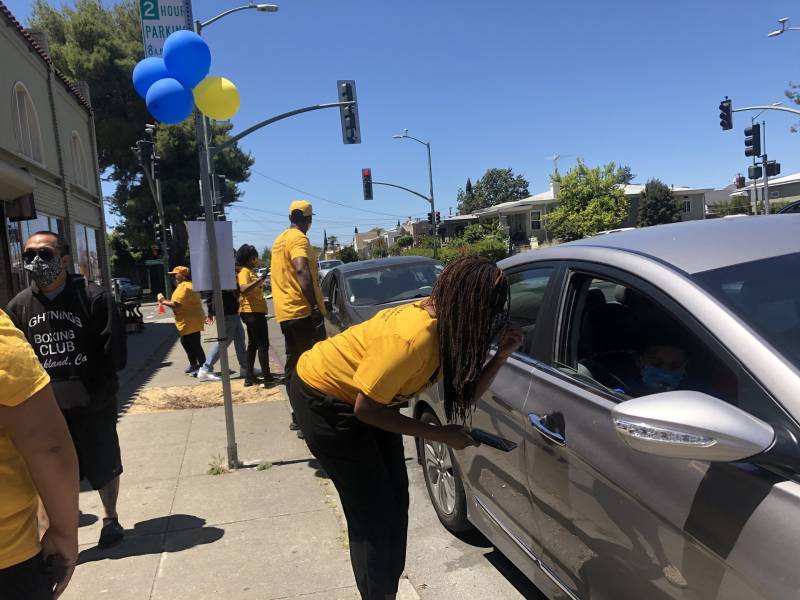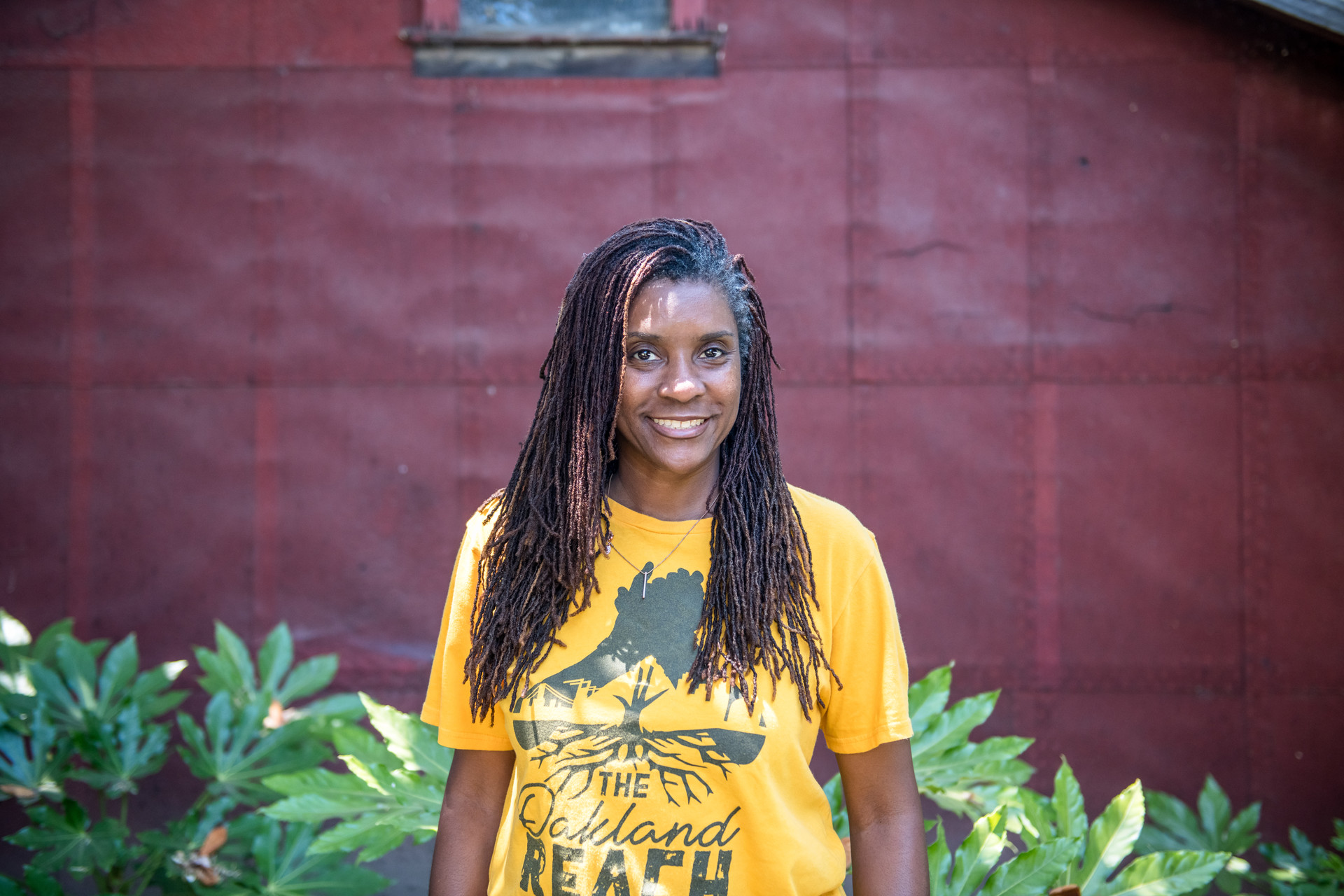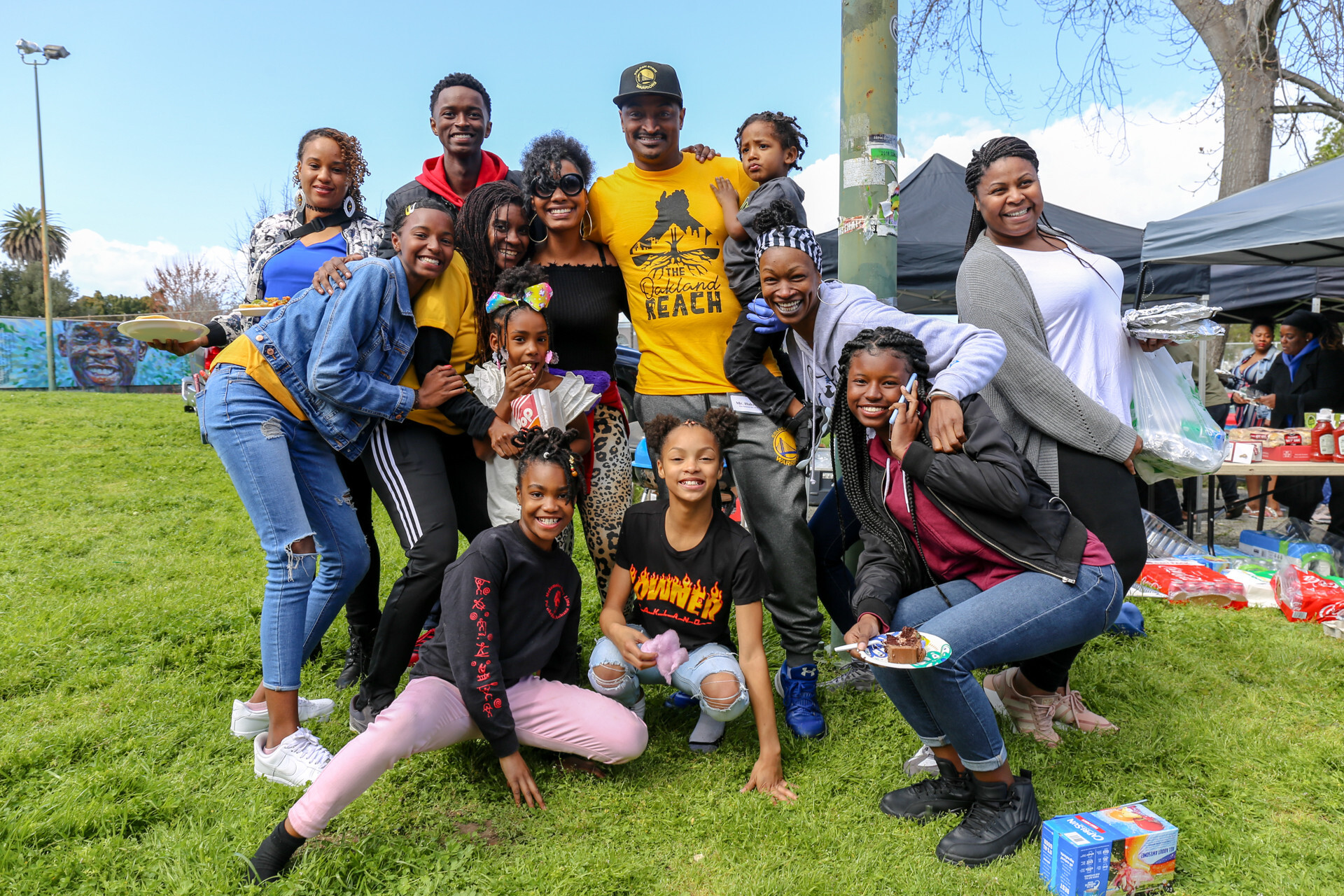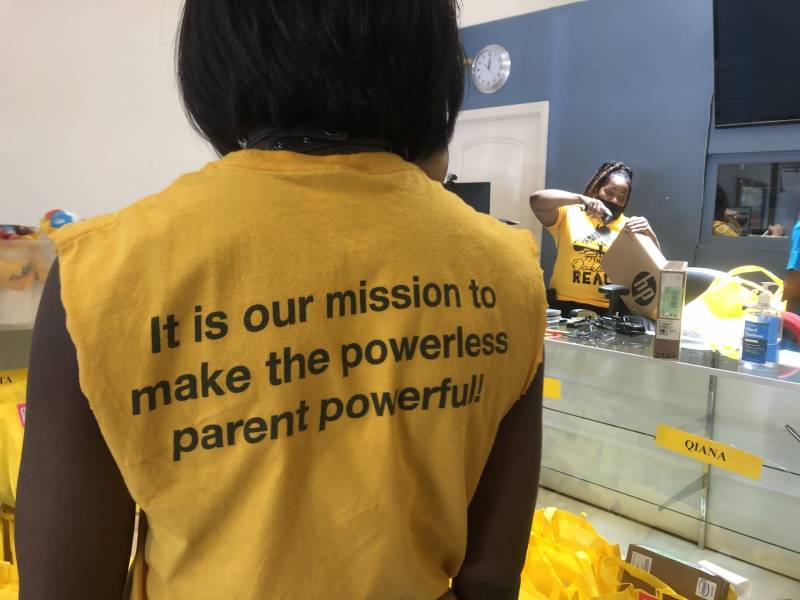After the chaos that marked the end of Oakland's 2019-20 school year, when many teachers scrambled to move classrooms online even as thousands of students lacked the required technology, Lakisha Young knew she had to do something.
The ‘Secret Sauce’: How a Parent-Led Project Is Reimagining Public Schools for Oakland's Black and Latino Students

“Immediately, when COVID hit, you heard so many people saying, ‘Oh my God, it's just going to get worse for Black and brown kids. It’s just gonna get worse,’ ” she said. “Well, then what are you going to do about it?”
For years, members of The Oakland REACH, the parent advocacy group Young founded, have been showing up at Oakland Unified School District board meetings demanding better schools, but academic outcomes for many students have barely budged. The district hasn't been able to get more than a quarter of Black and Latino kids up to state reading standards.
“We have no interest in continuing the learning that our children are getting,” Young said.
But when the COVID-19 pandemic hit last year, and billions of dollars in state and federal relief funds began flowing into school districts, REACH saw an opportunity to remake an education system they contend was failing their kids long before COVID closed schools.
“These issues are not new issues, but we have a new opportunity to do something,” Young said. “Why can't we create something that puts folks on the right path, that brings a sense of hope and of progress?”
To that end, Young and her team built an academic program from scratch, designed to supplement, not replace, the education students get at school.
“We’ve been able to fundraise to make sure our kids can get access to things that normally only wealthy, privileged families gain access to,” said Michael De Sousa, REACH’s chief program officer.
The program, which began as a summer school initiative last year, continued into the new school year, offering afternoon online art, karate, cooking, STEM and literature classes for kids of all ages, plus tutoring and intensive-reading help.

It served over 350 students throughout district and charter schools during the school year; about 400 are enrolled this summer in an expanded program that added new courses and one-on-one mentorship for high schoolers.
Young’s goal is to see the model adopted across the city, and she’s found a willing partner in OUSD. With the support of a $900,000 grant from the Center on Reinventing Public Education and TNTP (formerly The New Teacher Project), REACH and the district are expanding the program to six elementary schools.
“The brilliance of this moment is we all had to stretch and do something different out of necessity,” OUSD Superintendent Kyla Johnson-Trammell said at a national education conference recently, where she and Young talked about their sometimes tense partnership.
“There have been many touchy, uncomfortable conversations that Lakisha and I have had in terms of, ‘This isn't working,’ " she said. “But to me, that is the work.”
Johnson-Trammell acknowledges that her district needs to do more to get more kids in the most underserved communities reading at grade level and better prepared for college.
“It really is being radical in terms of, ‘Is there a different way to conceive of how a system operates?’ ” she said.
By fall, the goal is to expand the program to another 325 families, whose kids would have access to reading support and enrichment classes.
Howard Elementary School in East Oakland, one of the six schools in the pilot program, had just one literacy tutor before the partnership began. Now they’ve added three, allowing for smaller groups and more targeted instruction, according to Nikki Williams, the school’s principal.
“It’s about increasing the depth of the support,” she said. “Going from six [students per group] to four can really make a big difference, especially when you're talking about foundational skills.”
Students were selected based on literacy levels and staff recommendations, Williams says, noting that the program offers them more opportunities than what her school could provide alone.
“They're really a partner and a support to what's happening during the school day,” she said.
For Leonard Taylor’s daughter, Am’Briyah, who'll be starting second grade in the fall, the intensive literacy coaching made a difference this past year. Early in the school year, Taylor didn’t have child care, so Am’Briyah had to do her distance learning Zoom classes in the car while he delivered food for Grubhub — and she quickly started falling behind.
“It's hard to pay attention to the computer when you’re riding around and stuff is moving,” Taylor said.
He credits the REACH program’s small class sizes and one-on-one support for getting his daughter caught up.
“Actually, she's [now] above her reading level,” he said. “I feel better now because she's in tune, she shows interest. She doesn't even want to go to her regular school class; The Oakland REACH program, she's ready.”

Preliminary data collected by REACH last summer showed that during five weeks of online instruction, students, on average, made the kind of reading progress that’s normally expected over two months of in-person instruction.
“One of the things that I really appreciate from the partnership is that we keep coming back to the science of reading,” said Romy Trigg-Smith, OUSD's early literacy coordinator.
That means grounding not only literacy tutors, but also parents, in an evidence-based approach to teaching reading. REACH holds workshops to help parents understand their kids’ reading assessment data and to demonstrate what quality reading instruction should look like, with the goal of getting parents to advocate for it and support their kids at home.
Am’Briyah was one of just two students in an afternoon reading class this year led by Irene Segura, a former OUSD reading tutor. Segura’s new title with REACH is “literacy liberator.” She and nearly all the other coaches are Black or Latino, like their students. She credits the individualized attention for helping the kids make rapid reading gains, and says the program’s focus on the whole family is key.
“It's very family driven,” she said. “We involve the family so that they know exactly what they're teaching and can do a lot of the activities at home. And it's just a place where we keep each other safe and we care for each other and we solve problems together.”
Having the program so firmly grounded in family and community is what makes it unique, says Williams, the principal at Howard Elementary. “Sometimes hearing it parent-to-parent is so much more powerful. You can say, ‘My kids struggle with the same thing. Here is what I can do to support you,’ ” she said. “I think that just brings power to the message.”
Through the program, every family gets assigned a caseworker from their own community to help them navigate the school system and access everything from housing to employment services. REACH co-founder Keta Brown works with 18 families from all over Oakland and San Leandro.
“When you have these relationships, you understand the challenges of each family,” she said.
Sometimes that means making a house call to help a grandparent set up a Wi-Fi hotspot, or walking a parent through the school enrollment process. Brown says her goal is always to empower parents, not do things for them.
“There's a difference,” Brown said. “It's like cooking. You know, I'm not going to keep cooking all the food. We're gonna get our ingredients together and we're gonna lay out the recipe and you might want to add a little different twist. And at the end of the day it’s the dish that works for you.”

Although the district has family outreach staff, a single coordinator might serve hundreds of families. The REACH model brings that ratio down to 20 families per caseworker, at most.
“For me, what was really exciting was understanding what they call their secret sauce,” Trigg-Smith, the OUSD early literacy coordinator said. “How does that family support look different from how our family liaisons work? How can we learn from those practices?”
REACH’s Lakisha Young hopes her group’s model demonstrates to district administrators that outreach alone isn't enough; listening and responding to parents’ needs is also essential in getting them more involved in their kids' education.
“It's not just about engaging families,” she said. “It's helping families step into their power — making sure that the voices of families are really front and center in guiding solutions.”
Young says her goal is to help the district expand the program over the next couple of years, eventually handing it over to them completely.
“We would like to see this become the new normal,” she said.
